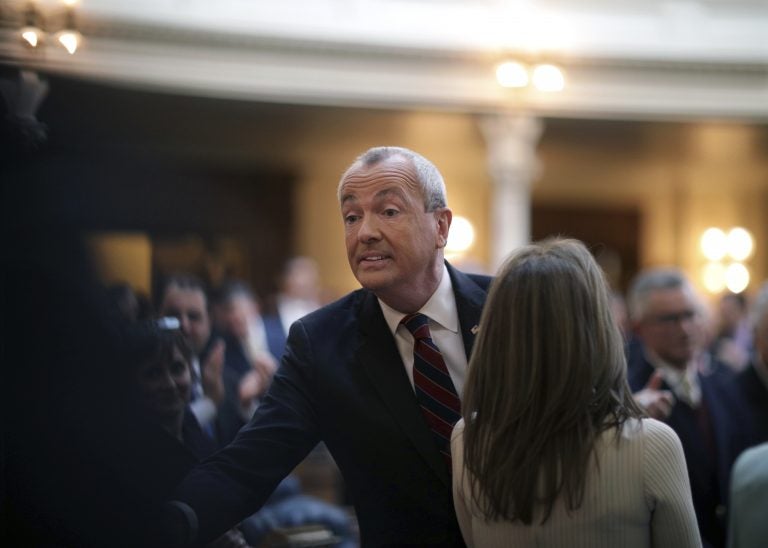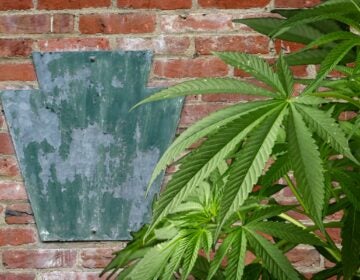New Jersey expanding its medical marijuana program
"The days of making residents jump through hoops are coming to an end," Murphy said. He added later: "We recognize that patients should be treated as patients, not criminals."

New Jersey Gov. Phil Murphy greets audience members Tuesday, March 13, 2018, in the Assembly chamber of the Statehouse in Trenton, N.J., where he unveiled his 2019 budget. (AP Photo/Mel Evans)
Gov. Phil Murphy on Tuesday announced an expansion of the state’s medical marijuana program and said residents would no longer have to “jump through hoops” to get access to the drug.
Murphy unveiled the recommendations of a panel commissioned earlier this year at a news conference at his Trenton office. Among the immediate changes are the addition of five conditions to be eligible for medical marijuana. Those are anxiety, migraines, Tourette’s syndrome, chronic pain related to musculoskeletal disorders and chronic visceral pain.
“The days of making residents jump through hoops are coming to an end,” Murphy said. He added later: “We recognize that patients should be treated as patients, not criminals.”
Murphy’s decision comes roughly a decade after the state implemented its medical marijuana program, enacted under Democratic Gov. Jon Corzine, but slowly implemented under Republican Chris Christie, who had a skeptical view of marijuana.
Murphy also announced that the patient fee to participate in the program would be reduced from $200 to $100, with a $20 rate for veterans and seniors. Another immediate change is the lifting of a one-caregiver per patient requirement, as well as the ability for the state’s five — soon to be six — treatment centers to be allowed to open satellite locations.
The governor is also allowing doctors who prescribe marijuana not to appear on a public registry. Murphy says there was a sense that doctors who prescribed the drug faced a stigma.
He’s also recommending changes in the law, including raising the monthly limit from 2 ounces to 4 ounces, letting hospice patients obtain an unlimited supply and giving adults access to edible marijuana. He also wants to permit the current treatment centers to become for-profit businesses. They’re currently nonprofits.
Ken Wolski, the executive director of the Coalition for Medical Marijuana New Jersey, welcomed the program’s expansion because it isn’t currently meeting the state’s needs. He says supply of medical cannabis continues to be a problem that the Department of Health will have to address.
Murphy said to address supply, he’s proposing changing regulations to let treatment centers specialize in specific areas, like cultivating, dispensing or manufacturing.
New Jersey has about 18,000 people in its medical marijuana program, a fraction of the more than 200,000 patients using a similar program in Michigan, according to the governor.
Wolski says the potential for demand in New Jersey could be about 1 million patients.
The announcement comes as Murphy pushes for legalized recreational marijuana in New Jersey. He said Tuesday he views the medical program’s expansion as strictly a health issue not affecting his efforts at recreational legalization.
WHYY is your source for fact-based, in-depth journalism and information. As a nonprofit organization, we rely on financial support from readers like you. Please give today.




